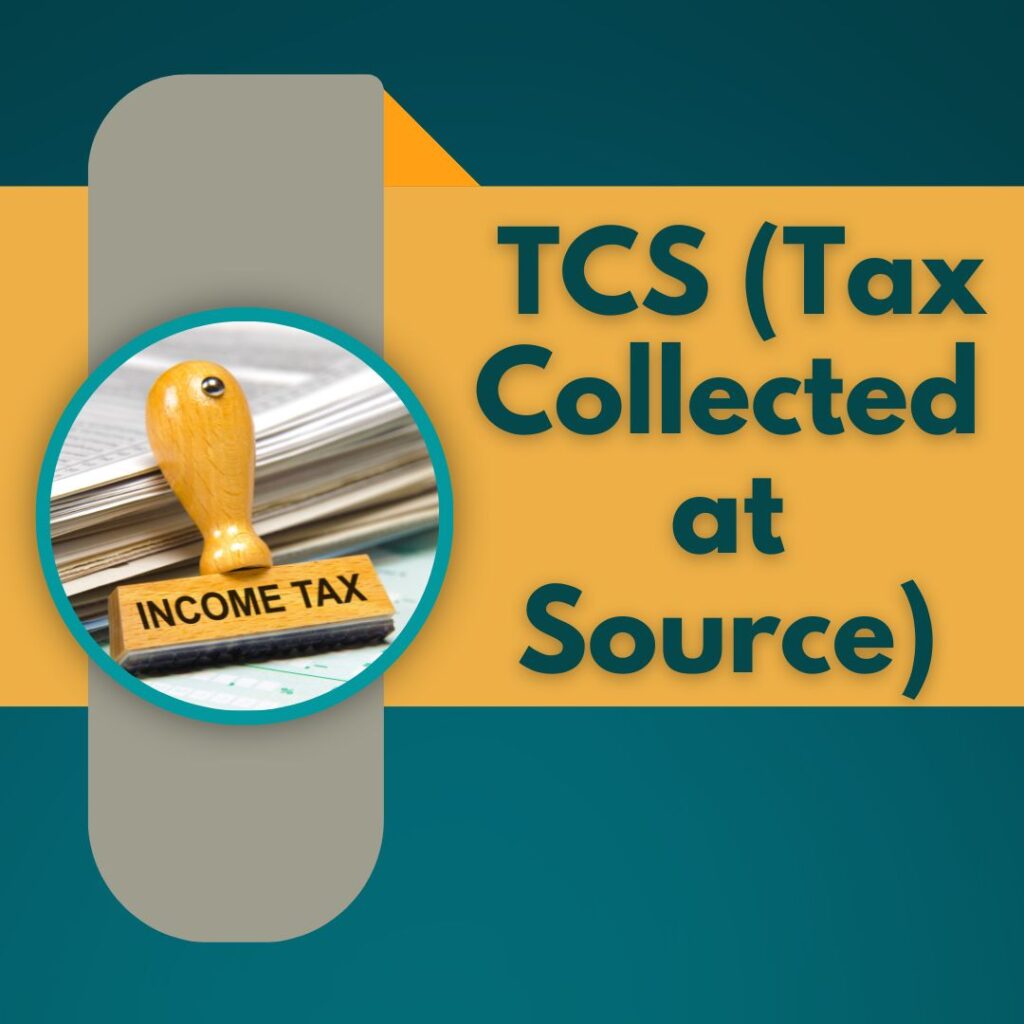TCS (Tax Collected at Source) is a tax collection mechanism in India where the seller collects tax from the buyer at the time of sale. Here are the key points about TCS:
Purpose:
- TCS is collected by the seller to be deposited with the tax authorities.
- It ensures that tax is collected at the point of sale itself.
Section 43B(h) on MSME: Income Tax Implications from AY 2024-25
Applicability:
- Section 206C of the Income Tax Act, 1961 specifies the goods and services on which TCS is applicable.
- Certain persons (such as sellers) must have a Tax Collection Account Number (TAN) to collect TCS.
Due dates for depositing and filing Tax Collected at Source (TCS) returns for the financial year 2023-24:
TCS Return Due Dates:
| Quarter | Period | Last Date of Filing |
|---|---|---|
| 1st | April 1 to June 30 | July 15, 2023 |
| 2nd | July 1 to September 30 | October 15, 2023 |
| 3rd | October 1 to December 31 | January 15, 2024 |
| 4th | January 1 to March 31 | May 15, 2024 |
How to read Notice under section 139(9), 142(1), 148, 153C
- TCS Payment Deposit Due Dates:
- For non-government deductors: 7th of the next month (except for March, where the due date is April 30th).
- For government deductors:
- If paid through challan: 7th of the next month.
- If paid through book entry: Same day as TDS deduction.
Due dates for issuing Tax Collected at Source (TCS) certificates for the financial year 2023-24:
| Quarter Ending | Due Date for TCS Certificate Issuance |
|---|---|
| December 31, 2023 | January 14, 2024 |
| March 31, 2024 | April 30, 2024 |
| June 30, 2024 | July 30, 2024 |
| September 30, 2024 | October 15, 2024 |
Explanation of Sections 234A, 234B, and 234C
Goods covered under Tax Collected at Source (TCS) provisions and their applicable rates:
| Type of Goods or Transactions | Rate |
|---|---|
| Liquor of alcoholic nature, made for consumption by humans | 1% |
| Timber wood under a forest lease | 2.5% |
| Tendu leaves | 5% |
| Timber wood by any other mode than forest lease | 2.5% |
| Forest produce other than Tendu leaves and timber | 2.5% |
| Scrap | 1% |
| Minerals like lignite, coal, and iron ore | 1% |
| Purchase of Motor vehicle exceeding ₹10 lakh | 1% |
| Parking lot, Toll Plaza, and Mining and Quarrying | 2% |
Additionally, if the total turnover of the seller in the previous financial year was more than ₹10 crore and they receive sale consideration of any products exceeding ₹50 lakh, such seller must collect TCS upon receiving consideration from the buyer on the amount over and above ₹50 lakh, as per Section 206C (IH) of the Income Tax Act.
Deductions under Section 80C to 80U
Provisions related to interest, penalty, and prosecution under Tax Collected at Source (TCS):
| Provision | Description |
|---|---|
| Section 201 | Consequences of failure to deduct or pay TCS. If a person (including the principal officer of a company) required to deduct tax fails to do so, they are deemed an assessee in default. However, if the payee (deductee) has filed an income tax return and accounted for the sum, the payer/deductor is not deemed an assessee in default. |
| Section 234E | Fee for default in furnishing TCS statements. |
| Section 271H | Penalty for failure to furnish TCS statement. |
| Section 271C | Penalty for failure to deduct tax at source. |
| Section 272A(2)(g) | Penalty for failure to furnish a certificate. |
| Section 276B/276BB | Prosecution for failure to pay tax to the credit of the Central Government. |
Additionally, interest is levied on delayed TCS payment at a rate of 1% per month or part thereof as per Section 206C(7) of the Income Tax Act. These provisions are crucial for ensuring compliance with TCS regulations. 📊💼
Important Case Laws on TCS:
- CIT vs. S. K. Art Gallery (2019):
- Key Points: Discusses the consequences of non-collection of TCS and its impact on the collector.
- V. S. Exports vs. ITO (2017):
- Key Points: Emphasizes the importance of correctly determining the applicability of TCS provisions.
- CIT vs. ABC Merchants (2018):
- Key Points: Highlights penalties for non-compliance with TCS provisions and the importance of timely deposits.
- R. K. Traders vs. CIT (2020):
- Key Points: Focuses on the consequences of delayed filing of TCS returns and applicable penalties.
- ITO vs. PQR Imports (2016):
- Key Points: Discusses the role of TCS certificates in the overall compliance framework.
- XYZ Developers vs. CIT (2018):
- Key Points: Discusses the correctness of TCS rates applied on various transactions by the collector.
- CIT vs. LMN Wines (2019):
- Key Points: Emphasizes the need for collectors to issue TCS certificates promptly to buyers.
- P. Q. Merchants vs. ITO (2020):
- Key Points: Highlights the applicability of different TCS sections based on the nature of transactions.
- A. B. Imports vs. CIT (2017):
- Key Points: Focuses on the concept of ‘NIL’ TCS certificates and their implications.
- ITO vs. S. M. Art Gallery (2018):
- Key Points: Discusses the criteria for the applicability of lower TCS rates and the relevant conditions.
